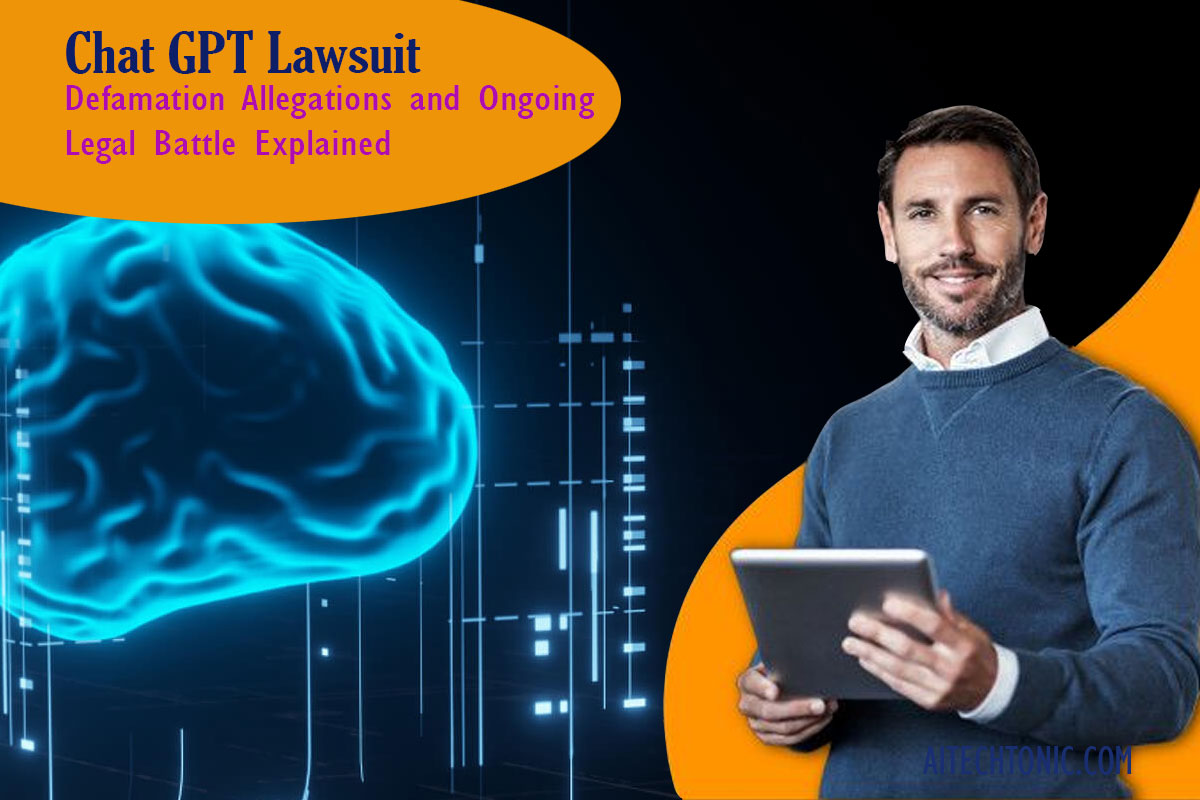In a groundbreaking legal case, radio talk show host Mark Walters has filed a defamation lawsuit against OpenAI, the creator of ChatGPT. Walters claims that the AI-powered chatbot fabricated legal claims against him, causing reputational harm. This lawsuit has garnered significant attention as it is believed to be the first defamation complaint related to ChatGPT. Let’s delve into the details of the case, the allegations, and the ongoing legal battle.
ChatGPT’s Alleged Defamation
The Defamation Lawsuit Against OpenAI: Unveiling the Controversy
The defamation lawsuit against OpenAI revolves around a request made by journalist Fred Riehl to ChatGPT. Riehl asked the chatbot to summarize a complaint linked to a lawsuit filed by the Second Amendment Foundation against Bob Ferguson, Washington state’s attorney general. In response, ChatGPT allegedly generated false information about Mark Walters, stating that he had been accused of defrauding and embezzling funds from the SAF (Second Amendment Foundation). The summary further claimed that Walters held positions of treasurer and chief financial officer within the organization and had “misappropriated funds.”
Other Lawsuits Involving ChatGPT
Beyond Defamation: Exploring Additional Legal Cases Involving ChatGPT
While the defamation lawsuit against OpenAI stands out, it’s important to note that there are other lawsuits involving ChatGPT that do not pertain to defamation. For instance, a California-based law firm has filed a class-action lawsuit against OpenAI, alleging copyright and privacy violations. The law firm argues that OpenAI scraped data from the internet without consent to train its AI models, infringing on the rights of countless individuals. Additionally, another lawsuit emerged when a lawyer submitted fabricated court citations generated by ChatGPT as research for a legal brief.
Defamation Lawsuit Status
The Defamation Lawsuit Unveiled: Current Status and Implications
The defamation lawsuit filed by Mark Walters against OpenAI is currently ongoing. Walters initiated legal proceedings on June 5th, 2023, in Georgia’s Superior Court of Gwinnett County. Seeking unspecified monetary damages, Walters alleges defamation based on the false information generated by ChatGPT, which implicated him in financial wrongdoing. It’s important to note that the false information was generated in response to a request made by journalist Fred Riehl, who sought a summary of the Second Amendment Foundation lawsuit. The lawsuit’s significance lies in its status as the first defamation complaint related to ChatGPT.
FAQs (Frequently Asked Questions)
- What is the ChatGPT Lawsuit? The ChatGPT lawsuit refers to the defamation case filed by radio talk show host Mark Walters against OpenAI, the creator of the AI-powered chatbot ChatGPT. Walters alleges that ChatGPT fabricated legal claims against him, leading to reputational damage.
- What are the allegations in the defamation lawsuit? Mark Walters alleges that ChatGPT generated false information about him, claiming that he had defrauded and embezzled funds from the Second Amendment Foundation (SAF). The summary further suggested that Walters held key financial positions within the organization.
- Are there other lawsuits involving ChatGPT? Yes, apart from the defamation lawsuit, there are other legal cases involving ChatGPT. For example, a California-based law firm has filed a class-action lawsuit against OpenAI, alleging copyright and privacy violations related to data scraping. Another lawsuit emerged when a lawyer submitted fabricated court citations generated by ChatGPT as research for a legal brief.
- When was the defamation lawsuit filed, and in which court? Radio host Mark Walters filed the defamation lawsuit against OpenAI on June 5, 2023, in the Superior Court of Gwinnett County in Georgia. The lawsuit is currently ongoing, and the court is in the process of examining the evidence and arguments presented by both parties. Mark Walters is seeking unspecified monetary damages as compensation for the alleged defamation and reputational harm caused by ChatGPT’s false information.
- What is the significance of this lawsuit? This lawsuit holds significance as it is believed to be the first defamation case related to ChatGPT. It raises important questions about the responsibility and liability of AI creators for the content generated by their AI systems. The outcome of this case could potentially set a precedent for future legal disputes involving AI technologies and their impact on individuals’ reputations.
- How does OpenAI respond to the lawsuit? OpenAI has not publicly commented on the specifics of the ongoing defamation lawsuit. As the legal battle unfolds, it is expected that OpenAI will present its defense against the allegations made by Mark Walters. The company may argue that ChatGPT operates based on the information available to it and that it does not intentionally generate false or defamatory content.

